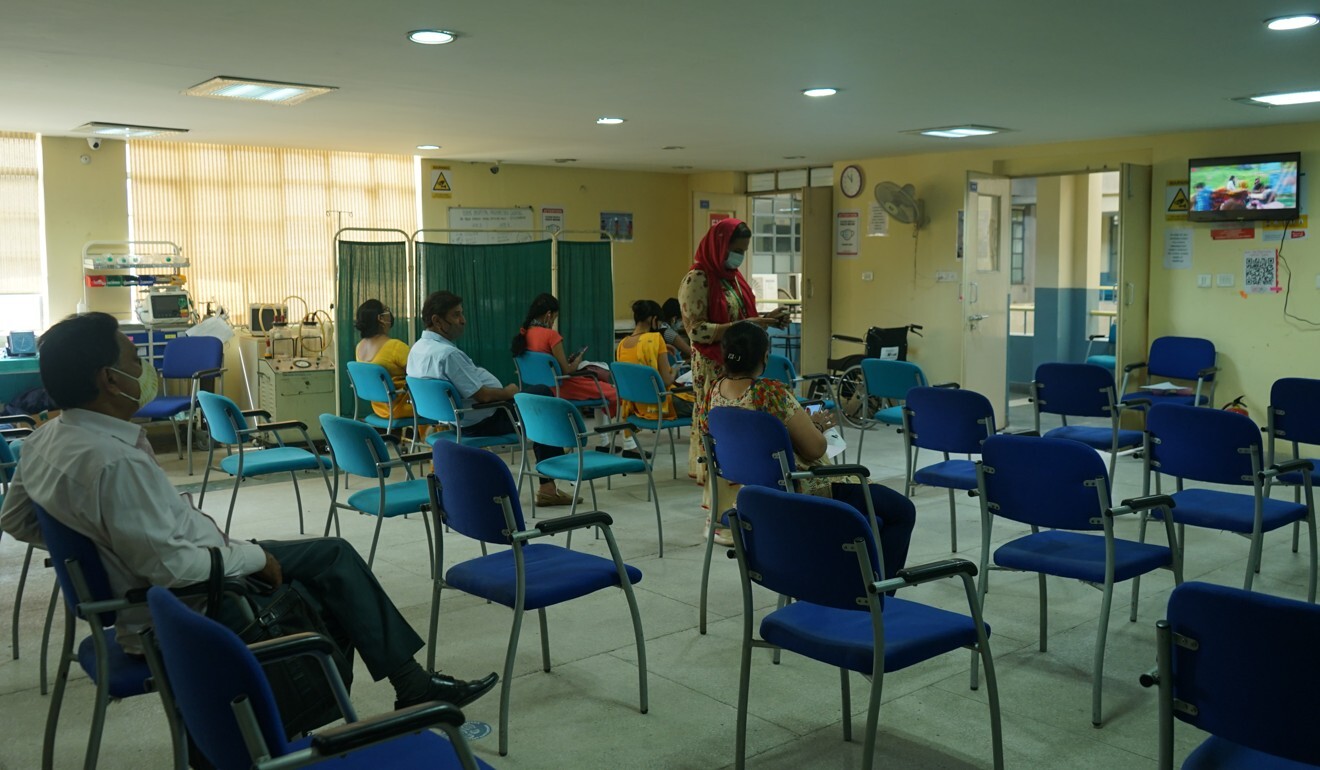
How India’s first transgender doctor to head a Covid-19 vaccination centre inspires, one dose at a time
- Dr Aqsa Shaikh – a medical professor, writer, volunteer and social activist – wants to make the most of her life after transitioning
- She says the fact that a trans person rarely achieves such a role highlights the barriers and discrimination that transgender people still face in India

When Dr Aqsa Shaikh announced on Twitter last week that she had been appointed to head a Covid-19 vaccination centre in New Delhi, her timeline was inundated with hundreds of congratulatory messages. Most notably, the 38-year-old was lauded for being the first and only transgender woman in India to have been given such a position.
As a senior faculty member at the Hamdard Institute of Medical Science and Research, she was already heavily involved in the battle against the pandemic and a natural choice for the job. Before India rolled out its vaccination drive on January 16, Shaikh was in charge of Covid-19 surveillance at the institute’s hospital, collating data on the number of infections, deaths and recoveries.
India is the second-worst hit country in the world after the US, with over 11.2 million coronavirus cases and nearly 158,000 deaths.
While it was a proud moment for her both personally and professionally, she said the fact that a trans person rarely made it to such a position highlighted the barriers and discrimination that transgender people still faced in India.
“There are thousands of vaccination centres in India and I’m the only trans person that has been appointed as the head of a Covid-19 vaccination centre, and that is a little disappointing,” she told This Week in Asia.
Shaikh also lamented the overall lack of transgender people in the medical profession in the country. “We have a pan-India group for trans medicos. But unfortunately there are just 15 members in it. Which is nothing in a country with a population of over 1.3 billion people, and only goes on to show how difficult it is for trans people to achieve their goals even in this day and age.”
Born, raised and educated in Mumbai, Shaikh said she struggled with her identity during her student years and wanted to transition to female. But her family did not support this and their relationship became increasingly fraught.
“When I told my family about my decision to transition they were completely against the idea,” she recalled.

After a lot of thought, Shaikh moved to New Delhi in 2011. It turned out to be the right decision. She quickly landed a job as a professor at the medical college, and in 2014, she transitioned from Zakir Hussain to Aqsa.
“I just took 14 days of leave for the surgery,” she said.
Shaikh had sensitised her students and colleagues, and to her surprise, they all took it in their stride and made it comfortable for her.
“I had been coming to work for years by then dressed as a man and now, after just a 14-day break, I was back as a woman. Even though people here had known me well, and how I identified myself, I wasn’t sure how they would take it. But it was better than what I had expected.”
Her professional success has changed a lot of perceptions among her colleagues and within the community at large, but that has still not convinced some family members. Since moving to Delhi she has not visited her home city once, although her mother sometimes comes to stay with her.
But that has not deterred her.
Shaikh sees her life after transition as a second chance and wants to make the most of it. Apart from being a doctor, she is a professor at a medical college and is involved in social activism. She also writes frequently on queer rights.
After communal riots northeast of Delhi last February left over 43 people dead and many more displaced, Shaikh and her group of volunteer doctors and students got involved in the rehabilitation of those who were injured. And the next month, a countrywide Covid-19 lockdown pushed her and her team to keep going.
“Since we were working in the vulnerable community, who were mostly migrant workers, they didn’t have food to eat. So we started a food kit distribution campaign for those stuck in the lockdown without any income,” she said.
The vaccination centre Shaikh heads handles about 150 people every day. While she is full of praise about India’s vaccination drive, she believes it can still be improved. “There is still a lot of hesitation among people regarding the vaccination. And even though the government has tried to create awareness there is a need to do more.”
She is also worried that the vaccination process, which involves visiting hospitals, may deter trans and queer people in the country.
“Trans people avoid going to hospitals for the fear of being discriminated against. So there may be hesitation among the community to come forward,” she said, suggesting a door-to-door vaccination drive to reach out to various marginalised communities.